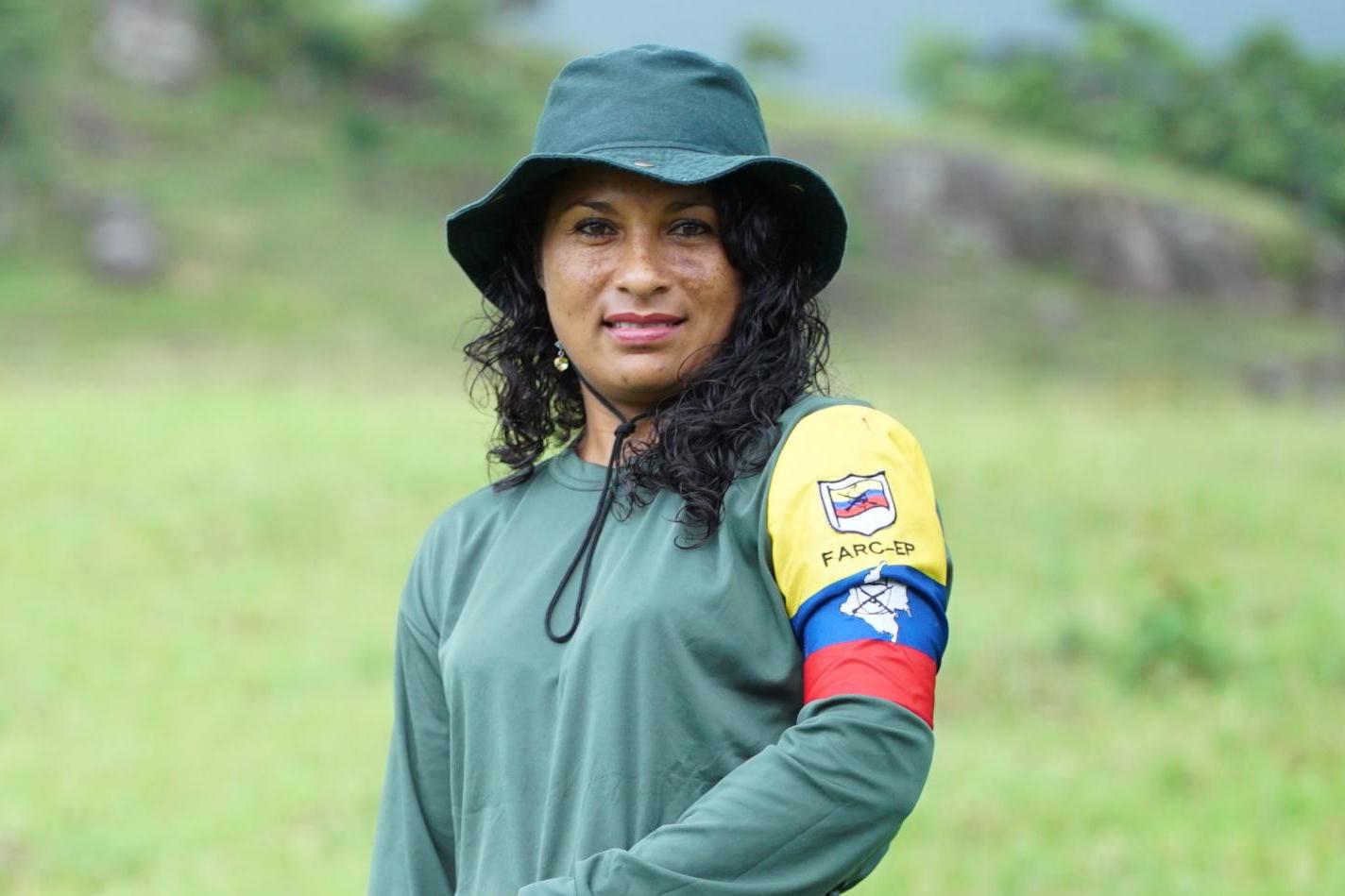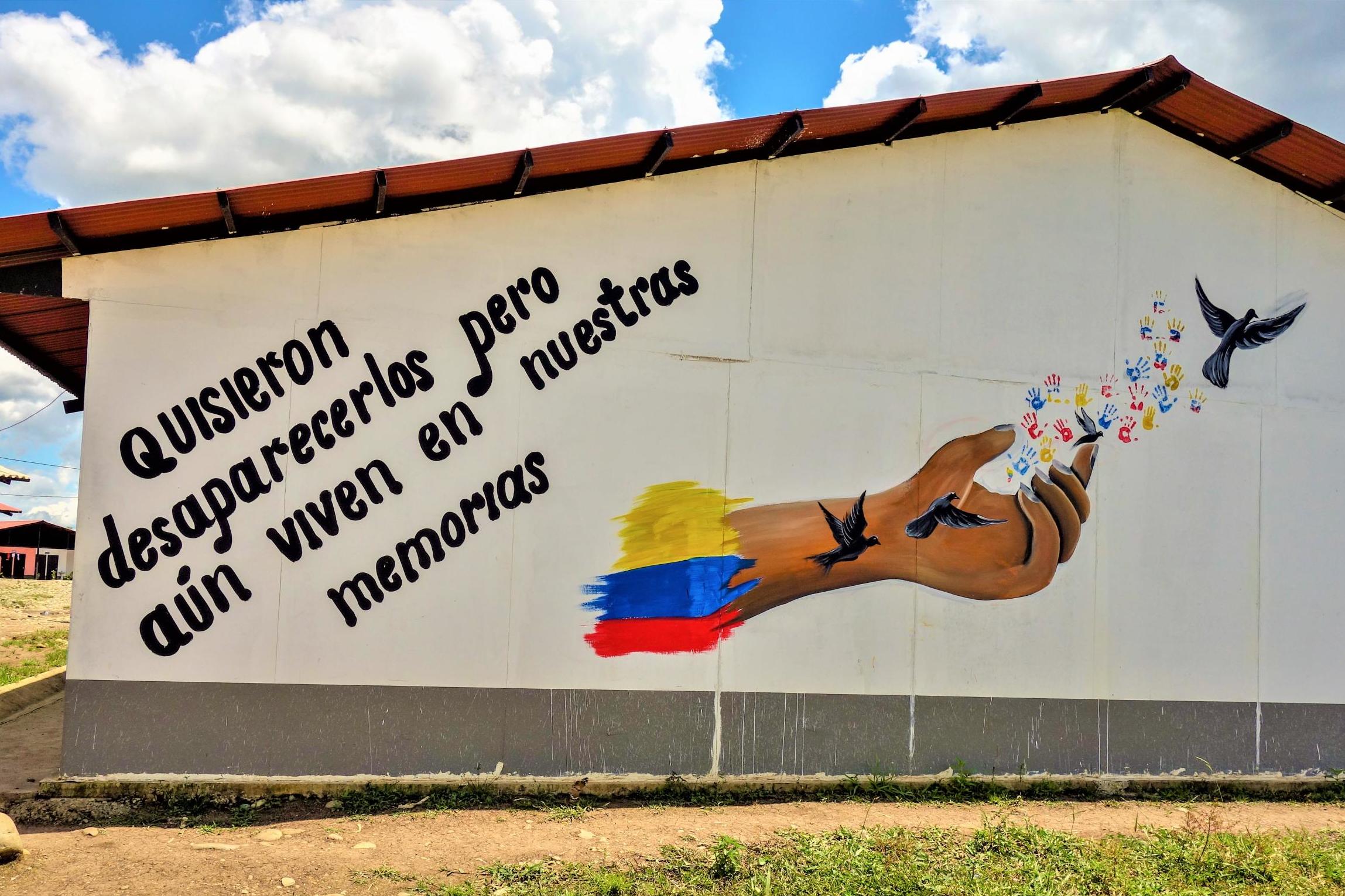‘No way, you’re an ex-guerrilla’: Former Farc militants struggle to reintegrate into Colombian society
‘It’s not easy, because for 53 years we were killing each other in Colombia in every possible way’. meets former rebel fighters

When Luz Marina met her partner Alexander Parra, she was plugging wounds and pulling shrapnel out of mangled legs with rudimentary medical equipment.
She was a medic, and he was teaching fellow guerrillas on the Marxist principles from which their communist insurgency, the Farc (Revolutionary Armed Forces of Colombia), was created.
“We found love in armed struggle”, says 51-year-old Parra, glancing affectionately at his companion while recalling the first time their paths crossed in boggy moors south of Colombia’s capital, Bogota, in 1992.
But as quickly as the two fell in love, they were separated when they were sent to different battle fronts – and they were not to see each other again for some 20 years.
Marina assumed Parra had been killed until they met unexpectedly in a remote camp in the country’s eastern plains where the Farc were celebrating the handing over of its weapons in June 2017, following a historic peace deal between the guerrilla army and the Colombian government.
Some 7,000 combatants demobilised as the Farc moved from armed insurgency to peaceful political party; Parra had put down his gun, Marina was finally free from prison.
“It was a moment of joy and tears, an explosion of happiness,” says Parra, a lively figure who sports an immaculate white sombrero with trousers to match.
Now, they are trying to build new lives and reintegrate into Colombian society.
Seated in wooden chairs outside their home at Camp Mariana Paez – one of 26 settlements established by the government as part of the peace deal to help ex-combatants assimilate into society – they nostalgically recount stories as their children play with the family cats.
Like many of the 260 residents, their current living conditions in the country’s eastern plains are a far cry from those of their past.
They are delighted to have roofs over their heads instead of tents, and are now able to be with their children (women were forbidden from getting pregnant, separated from their children and abortions were compulsory for Farc rebels).
“We never thought about a future, we didn’t even have the illusion of living a second day,” Marina says.
The couple – who now both work for the camp – have seized the transition from guerrilla to civilian with zeal, but many of its residents are struggling to build new lives.
“A lot of people have left to find work,” Marina says. “The reply they get is: ‘You? No way, you’re an ex-guerrilla’.”
Since Farc’s formation in 1964, the conflict claimed 260,000 lives and displaced over 7 million people.
“It’s not easy because for 53 years we were killing each other in Colombia in every possible way”, Parra says.
“It will take a long time for the hatred and vengeance to disappear”.

Many ex-combatants also claim the government has not held up its end of the peace deal in terms of a monthly stipend, education and training. They are also finding it difficult to subsist and cultivate crops on the surrounding farmland.
There’s a growing fear that this lack of opportunity and disillusionment can easily play into the hands of active dissident groups who refused to disarm.
According to government support workers in the camp, these groups – thought to number some 3,000 members – have an established presence in the camps and are actively recruiting.
They can offer ex-guerrillas up to four times the $230-a-month government stipend they currently receive.
“If reincorporation is not successful, who can guarantee that 5,000 [ex-guerrillas] won’t go back?” Marina asks anxiously. “They have all the experience the [dissidents] need.”
But for residents determined not to take up arms again, a number of promising independent initiatives have sprung up around the camp.
Now it resembles a tightly-knit, self-sufficient commune with luxuries such as homemade Greek yoghurt and ice cream traded between its residents for reasonable prices.
If reincorporation is not successful, who can guarantee that 5,000 [ex-guerrillas] won’t go back?
One such example is Yesenia Quintero, who after spending 14 years in the Farc, opened the Kneading Dreams bakery which has since become the camp’s social hub.
It was a learning process, she says, as no one knew how to manage a business – but believes the teamwork she learnt in the rebel army as a teenager has served her well.
Launched with financial support from foreign NGOs, she employs aged and single mothers who demobilised, and teaches them how to make pastries and desserts.
Parra and Marina echo the ex-guerrilla-cum-baker’s determination.
“It will not be easy, but here we are, our heart and soul dedicated to the peace process,” Parra says.
“We have to make it work as now we have a new responsibility, if not for ourselves, we have to guarantee to our children a better life,” adds Marina.
Join our commenting forum
Join thought-provoking conversations, follow other Independent readers and see their replies
Comments
Bookmark popover
Removed from bookmarks